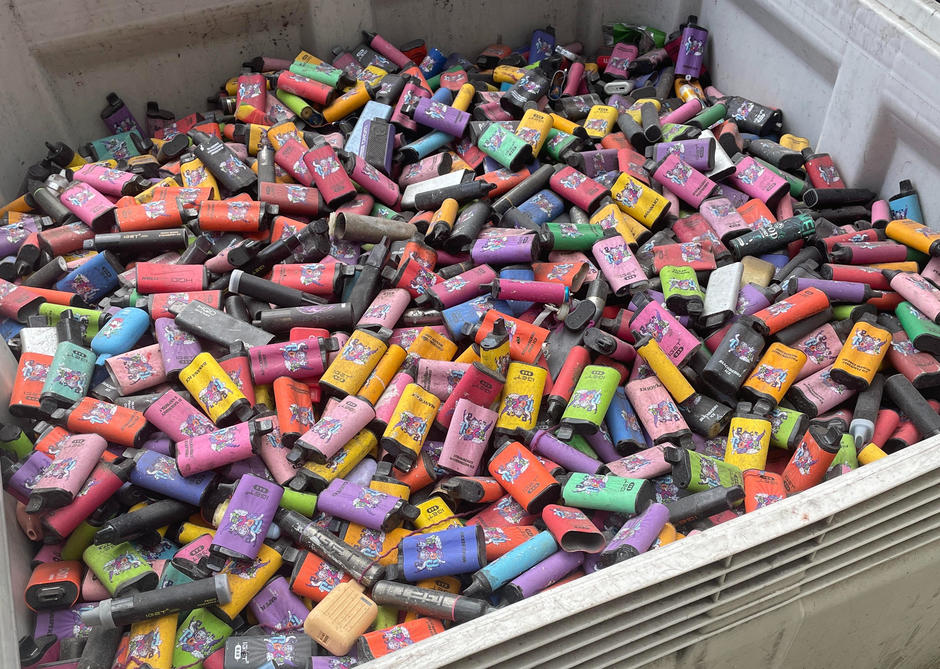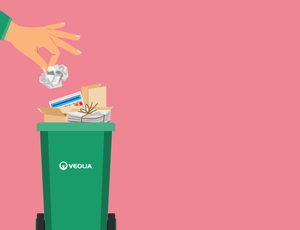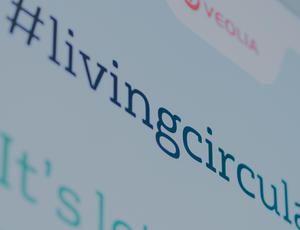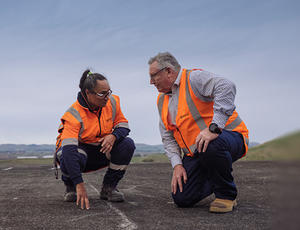Did you know that everyday items like vapes and electric toothbrushes have the potential to cause fires if not recycled properly?
Fire and Rescue NSW data showed there was an almost 20 per cent increase in battery-related fire or explosion incidents, when comparing the first half of 2023 to the first half of 2022.

In the first six months of 2023 there were 114 lithium battery related fires, with key items of concern being power packs and chargers, micro-mobility devices like e-bikes and e-scooters and portable power banks.
The most important thing to understand is that the batteries do not belong in waste bins. By taking a few simple steps, you can help protect our environment and prevent dangerous truck fires.
The Hidden Fire Hazard: Vapes, electric toothbrushes, and other electronics contain lithium-ion batteries that, when not disposed of correctly, can lead to devastating fires. When these items end up in general waste, they can be crushed or damaged during transportation, causing the batteries to short-circuit and ignite. Preventing this hazard starts with responsible recycling.
Reduce, Reuse, Recycle: Recycling isn't just about protecting the environment; it's about safeguarding communities as well. By recycling common items such as old vapes and electric toothbrushes, you're ensuring that these potentially hazardous items are properly handled and their components are repurposed or disposed of safely.
Simple Recycling Steps:
Locate a recycling centre: Find a nearby recycling centre or drop-off point that accepts electronic waste, including vapes and electric toothbrushes. Don’t forget, some retailers accept batteries and e-waste for recycling too!
Proper disposal: Follow guidelines for safely disposing of electronics – remove batteries if possible and separate components as needed.
Spread the word: Educate your friends and family about the importance of recycling electronics to prevent fires and protect our environment.
Environmental benefits: Recycling these items not only prevents fires but also conserves valuable resources. Valuable materials like metals and plastics can be recovered and reused, reducing the need for new raw materials and minimising environmental impact.
A safer future: By making informed choices about how we dispose of everyday items, we contribute to a safer and more sustainable future. Our collective efforts in responsible recycling can make a significant difference in reducing the risk of fires in waste management trucks like Veolia's and landfills.
Remember, it's not just about throwing things away – it's about making choices that benefit our environment and keep our communities safe. By recycling vapes, electric toothbrushes, and other electronics, you're taking a proactive step towards preventing fires and promoting a greener world. Be fire smart, recycle responsibly, and help create a safer tomorrow for us all.
Want to know more? We’ve got you covered below:
What makes batteries so hazardous and volatile?
They can contain lead, alkaline, nickel and lithium, which are harmful to the environment if not disposed of appropriately.
It is important to segregate battery waste from general waste stream as they contain resources that can be recycled and reused.
The CSIRO says only 10% of Australia's lithium-ion battery waste was recycled in 2021, compared with 99% of lead acid battery waste. Crucially, lithium-ion battery waste is growing by 20 per cent per year and could exceed 136,000 tonnes by 2036.
What should you do if a lithium battery catches fire?
You should evacuate immediately.
Battery-ignited fires erupt very quickly and can escalate into large blazes within seconds due to the chemicals within them.
Why are batteries and e-waste recycled?
Batteries can contain up to 95% recyclable materials. By recycling them, materials like aluminium, steel and copper are reintroduced to the manufacturing sector and can be used in new products.
Lithium-ion batteries, meanwhile, contain metals such as nickel and cobalt, and these resources can be used as a foundation for building new lithium-ion batteries if recycled properly.
In Australia and New Zealand, Veolia has solutions in place to support the collection, recycling and re-use of lithium-ion batteries.





